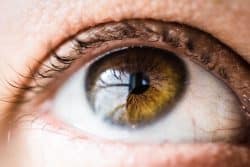Are you or a loved one suffering from the following symptoms- distortion or blurring of images at all distances, headaches, and fatigue or even squinting and eye discomfort or irritation? These symptoms may not necessarily mean a diagnosis of astigmatism, however, if you experience one or more of these symptoms, contact your ophthalmologist for a complete exam. Let’s look at the causes and treatment for astigmatism.

What Is Astigmatism?
Astigmatism is an imperfection in the curvature of your cornea — the clear, round dome covering the eye’s iris and pupil — or in the shape of the eye’s lens. Astigmatism is very common. In most cases, people with astigmatism are born with this condition. The reason why corneal shape differs from person to person is unknown, but the likelihood of developing astigmatism is inherited.

Treatment For Astigmatism
Depending upon the degree of astigmatism will determine the treatment needed. If the degree of astigmatism is slight and there are no other problems of refraction, such as nearsightedness or farsightedness, corrective lenses may not be needed.

If the degree of astigmatism is great enough to cause eye strain, headache, or distortion of vision, corrective lenses will be needed for clear and comfortable vision. Your ophthalmologist will perform precise tests during your exam to determine the ideal lens prescription. Refractive surgery also may be an option for correcting some forms of astigmatism.

